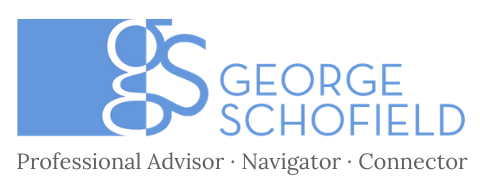Most of us now in or thinking about our “retirement years”, whether we’re still working full or part time or not, grew up with a 4 stage life model:
1. Childhood
2. Education
3. Work and Family
4. Retirement
What has changed? “Retirement” has developed multiple forms and there is no one way to do it, much less do it right. Many of us will never stop working. Some of us will leave our full time employment and never work again. Others will leave historic employment and – after a work hiatus of weeks to years, will eventually go back to work full or part time or start a new business. We run the risk of outliving our money. We will live longer than we expected. We’ll get bored. We’ll find volunteering and other activities so rewarding – or not- that working again might never happen. We’ll surprise ourselves, thinking that we have it all figured out and then change our minds.
All of this change means that the smartest among us will carefully follow some new rules that allow us to be in a position to change our form of retirement to suit our needs as we go along. Here are new rules that my clients have discovered to be highly useful.
Bill, now 67, retired 7 years ago from the sports equipment business, never dreaming that he might want to go back to work much less become an entrepreneur.
Even though he spent most days fishing (his favorite activity), by year 2 of retirement he started getting bored. At year 4 he continued to fish but also completed the major house remodel he had begun as a reaction to year 2. At year 5 he started missing some of the pressure and goal-driven situations he had retired to avoid, fishing or no fishing. At year 7 he came to me with an idea: What if he started a specialty online fishing tackle business that would give him a chance to work part time, provide more stimulation and creativity, make some money, and enjoy another aspect of his passion for fishing?
What would he need to have in place to get this new venture started?
• Good business sense
• A brand supported by smart marketing
• Enough capital in the form of cash and inventory, as well as enough money to carry the business well beyond the projected profitability expectations
• Technology skills, systems, and professional resources
• A growing business network that’s a combination of connections from his previous work (specifically, people who have also moved on and grown/adapted their own professional networks and experience accordingly)
• A new network of vendors and professional service providers
• Agreement with his wife that they both support this new investment and direction; this is really a business and not a philanthropic effort in which he is the primary recipient of donor benevolence
What shines through all of this? So much of it will be dependent upon his relationships with a variety of people to whom he will turn for support and recommendations.
Should he expect his professional network from 7 years ago to still be intact, awaiting his return? No. Will he have to add new connections? Yes. But was he glad he had a foundational network from earlier in his life as a place to start!
What is your experience? How many forms of Retirement might you practice and why? Let me know your stories so I can pass your wisdom along to others.


 George Schofield is a division of The Clarity Group, LLC© 2017 George Schofield. All rights reserved.
George Schofield is a division of The Clarity Group, LLC© 2017 George Schofield. All rights reserved.